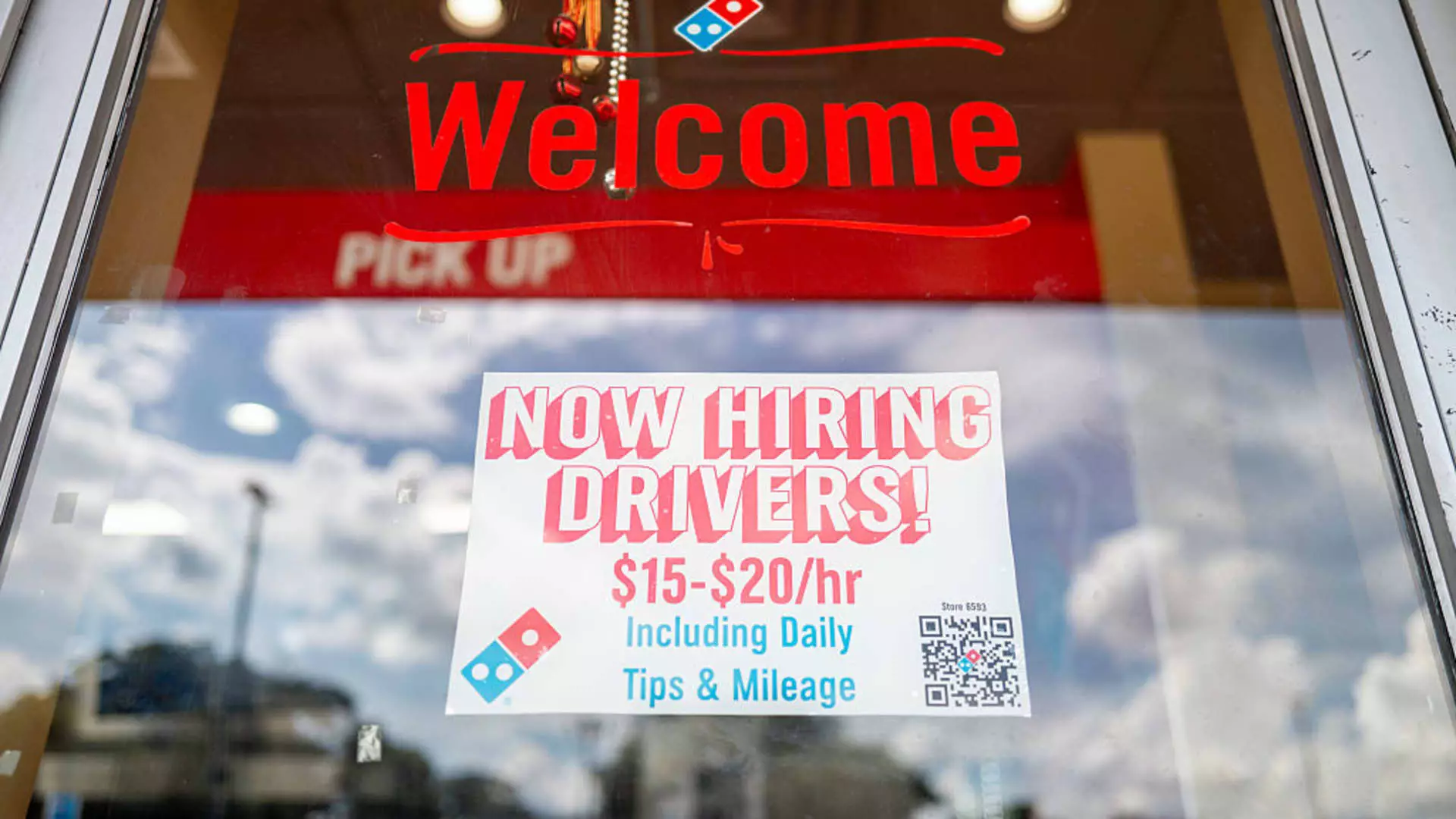For years, the narrative of a robust, ever-expanding labor market has been the bedrock of bipartisan political reassurance. Yet, beneath this optimistic facade lies a brewing storm—an erosion of confidence in our economic resilience. The current downturn, driven by deliberate federal workforce reductions and global economic headwinds, exposes a fragile foundation that could have far-reaching implications for the nation’s social fabric. It’s time we acknowledge that this slowdown isn’t just a blip; it signals a profound shift that demands immediate attention and strategic reevaluation.
The supposed strength of the labor market has long been portrayed as an unassailable pillar supporting America’s economic stature. However, recent data paints a different story. The Biden administration’s workplace policies, combined with the misguided efforts of certain federal agencies to slash staffing—ostensibly to optimize governance—are now revealing their true costs. A sudden contraction in job openings, stagnation in hiring rates, and a surge in federal workers desperately seeking new employment opportunities are symptoms of deeper systemic issues. This isn’t a transient downturn but a harbinger of structural vulnerabilities that threaten to undercut our economic stability.
The Political Cost of Workforce Contraction
The decision by agencies influenced by the Department of Government Efficiency (DOGE)—a moniker that cynically encapsulates efforts to streamline or austere federal operations—has resulted in over 280,000 federal positions eliminated this year. Such drastic headcount reductions have not only hindered government functions but have also sent shockwaves through the labor market. For workers, especially those in white-collar sectors like data analytics, marketing, and software development, these layoffs have become a grim reality. The rise in job applications from federal employees seeking alternative employment—up by 150%—speaks volumes about the dislocation caused by these policies.
From a center-left liberal perspective, these actions are troubling. They underscore a misguided belief that reducing government employment can be universally beneficial or cost-effective, yet fail to consider the societal costs of workforce destabilization. The edifice of a healthy, inclusive economy relies on stable, meaningful employment opportunities. When the government, a major employer for millions, scales back excessively, it risks creating a ripple effect that could undermine the broader economy and increase inequality.
Moreover, the political narrative often celebrates deregulation and fiscal conservatism without addressing the human fallout. The aftermath of these cuts reveals a stark reality: workers are suffering not because of economic necessity but because of policy choices rooted in ideology. These decisions threaten to widen the income gap and diminish public trust in government efficacy, ultimately endangering the social cohesion that is necessary for democratic stability.
Structural Factors Amplifying the Crisis
Beyond the immediate layoffs, several external economic factors compound the problem. The Federal Reserve’s sustained high-interest rate environment hampers tech startups and other debt-reliant industries from expanding and hiring. This monetary policy stance—ostensibly aimed at curbing inflation—has unintended consequences: stifling innovation, constraining employment, and discouraging investment. The tech sector, a vital driver of economic growth and skilled employment, finds itself cornered by elevated borrowing costs, shrinking opportunities for upward mobility.
Simultaneously, the labor market’s white-collar segment appears to be paradoxically in flux. On one hand, applications from federal employees are soaring, highlighting job insecurity and a disruption of traditional career pathways. On the other, demand from employers for these very skills has waned sharply, illustrating a disconnect that challenges the assumptions of a resilient economy. If these trends persist, a sizable segment of the middle class—particularly in knowledge-driven sectors—could face persistent underemployment or long-term unemployment.
This looming crisis exposes the fallacy of unquestioned optimism about our economic trajectory. While official unemployment figures might suggest a steady recovery, underlying issues such as stagnant wages, job insecurity, and widening inequality tell a different story. The notion that America’s job market is invulnerable rests on shaky ground, especially when policy decisions undermine its base.
A Call for Center-Left Leadership and Economical Reforms
What the situation demands is a recalibration—a move away from simplistic austerity measures towards policies that foster sustainable growth and protect vulnerable workers. Center-left liberalism advocates for strategic investments in workforce development, robust social safety nets, and targeted infrastructure projects that can generate good jobs while promoting economic equity. Cutting hundreds of thousands of government positions in the name of efficiency may yield short-term budgetary gains but sacrifices the long-term social and economic stability essential for a thriving democracy.
Reform-minded leadership must recognize that government is a critical driver of economic vitality, not an obstacle to it. Adequate funding for public services, modernization of federal agencies, and smart policies that balance fiscal responsibility with social investment are imperative. It’s also crucial to address the root causes of economic downturns, such as unchecked corporate greed, stock buybacks, and a lack of worker protections, which facilitate cyclical instability rather than sustainable prosperity.
Additionally, policymakers should critically evaluate the impact of monetary policies on employment, especially within innovative sectors. A balanced approach that supports growth without choking off access to capital can help ensure that White-collar workers, particularly those displaced by federal cuts, are given pathways to meaningful employment and upward mobility.
In essence, the current labor market downturn serves as a stark reminder that economic policies are moral choices. They influence lives, shape communities, and define the future trajectory of our nation. For center-left liberals, there is an urgent responsibility to advocate policies that prioritize human dignity and economic fairness, recognizing that the health of our workforce is inseparable from the health of our democracy.



Leave a Reply